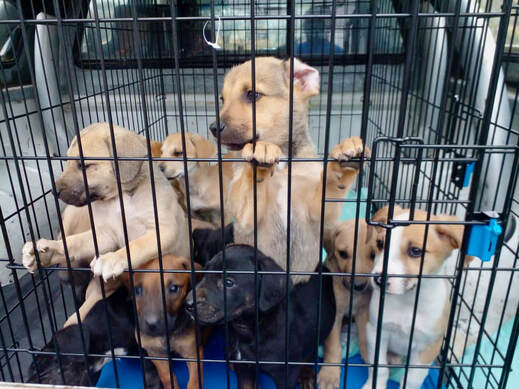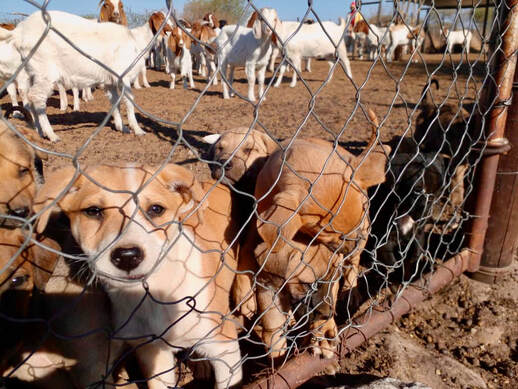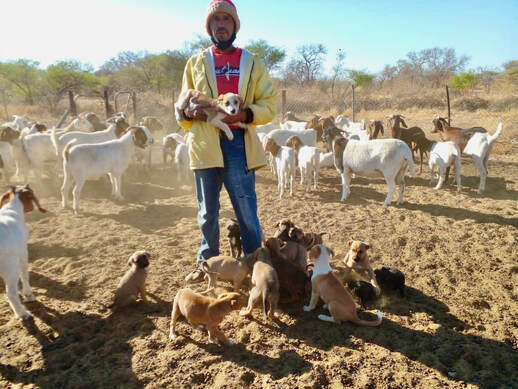We are extremely thankful to the BSPCA for their work rescuing animals and for the efforts made to get these puppies to us. We also wish to thank Vetswana for their veterinary support and the Botswana Government’s Department of Veterinary Services for the permits needed to transport the dogs from Gaborone to our training facility in Ghanzi. Together we are achieving sustainable positive change for coexistence in the Kalahari!
|
Everybody’s favourite conservation project, CCB’s livestock guarding dog (LGD) programme, got a significant boost in September with a delivery of 14 local “Tswana” LGD puppies from the Botswana Society for the Prevention of Cruelty to Animals (BSPCA). The unwanted “Tswana” puppies were collected from the shelter in Gaborone and driven the 600km to our LGD training facility in Ghanzi where they are now learning how to guard livestock from our experienced LGDs under the watchful eye of our demonstration herd managers N’xau and Dingalo. These puppies will receive the best possible start to life with optimum health care and expert training, before being placed with farmers experiencing conflict with carnivores. All dogs are monitored and farmers supported with free veterinary care for their dogs, to ensure that they are in the best possible shape to protect goats and sheep from predation, thereby protecting cheetahs and other wildlife from persecution from farmers. Recently published research from our LGD placement programme has demonstrated that LGDs cause a reduction in livestock killed by carnivores of at least 85%, so we are confident that these little puppies will create much needed relief for farmers experiencing human-wildlife conflict. We are extremely thankful to the BSPCA for their work rescuing animals and for the efforts made to get these puppies to us. We also wish to thank Vetswana for their veterinary support and the Botswana Government’s Department of Veterinary Services for the permits needed to transport the dogs from Gaborone to our training facility in Ghanzi. Together we are achieving sustainable positive change for coexistence in the Kalahari! Above: The puppies in CCB's new transport box, being driven from the BSPCA in Gaborone to our cheetah camp in Ghanzi Above: The puppies arrive at our demonstration farm, ready to start their training as livestock guarding dogs Above: CCB's livestock manager Dingalo oversees the initial meeting between the puppies and the goats and sheep
2 Comments
Maliko Mapeni
5/9/2024 07:10:36 am
I am Gaborone and need a livestock guarding dog (Goats n Sheep. Where are you located n do you sell them? Price.
Reply
Cheetah Conservation Botswana
5/9/2024 09:51:28 pm
Hello Maliko,
Reply
Leave a Reply. |
SearchArchives
May 2024
Categories |




 RSS Feed
RSS Feed
